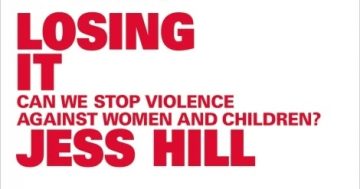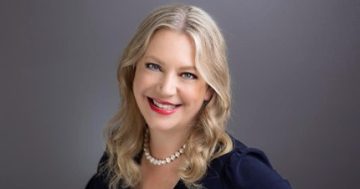Kathy Petitte Novak* says there is something disparaging about the newsworthiness of female achievements more than a century after women’s suffrage.

Photo: fizkes
It’s been more than 100 years since women won the right to vote and nearly 60 since the women’s liberation movement took shape — but amid the celebrations, many women are wondering what strides have been made since.
We have made some strides: women are making herstory in space and are running for office.
They outnumber men in higher education and make up roughly half the labour force and more than half of management and professional positions.
But the number of women leaders at the top in business and politics drops sharply.
Women still earn just 80 cents on the dollar to men.
Campus sexual assault occurs at epidemic levels, and the #MeToo movement has revealed widespread sexism and sexual harassment across sectors and geographic lines.
There is something disparaging about the newsworthiness of female achievements one century after suffrage.
They’re a demarcation that signifies the remarkableness of achievement based on gender, rather than on the individual.
As a liberal arts professor, my teaching examines the social constructs that reinforce stereotypical beliefs that block an open path to gender parity — not only in work and politics, but in the home.
From my experience, I’ve learned that gender is complicated, and beliefs embedded in the social world of understanding about gender are not easily modified.
And I know that implicit bias plays a significant part in this challenge.
This year, for the first time in my 26 years as a professor, I taught my first all-female class (in a course on leadership, no less!).
In one class, a guest speaker told us about how she built her own successful public relations company.
Bias in the workplace inspired this speaker to leave one company to build her own; as the semester progressed, my students continued to bring her up in our discussions.
They felt she had it all: She was confident, educated, married, and about to have her first child.
Students felt she had her life map — the process of plotting out when and how to achieve career, marriage, home and children within the limited amount of physiological time women have to get there — solidly charted.
They feared that they didn’t.
One student said her biggest fear after university is what she saw as a collision between building a career and having children; it pained me to hear that she saw those two things as naturally in conflict.
Even while my all-female class was well aware of the gender hurdles ahead of them, some maintained that there are just some things only a man can do — like lead the country — news of which felt like arrows to the heart.
To be honest, it’d be a lot more doable for women to “have it all” if true gender equity and the fair division of labour existed in the home.
The time would seem long past ripe for a woman to lead in the White House — but a woman for US President is still secondary for some.
A 2018 Pew study showed 45 per cent of Americans personally hope to see this happen sometime in their lifetime, but part of the battle may still be a matter of overcoming implicit biases that distort or negate individuals based on deeply embedded notions about gender capabilities.
A recent Bravo TV show, “In a Man’s World” provided an unscientific but revealing test of how gender bias continues to operate.
On it, women were given a special effects makeover, dressed in men’s clothing and coached in male gestures and mannerisms.
The experience was revelatory for the women who realised that, while dressed as men, they readily embodied a power they presumed of their male alter egos — a power that they as women had always fought to earn.
Project Implicit is an established research site with free tests that invite self-examination.
Students in my leadership class took the tests, but were largely displeased by their results.
The tests won’t necessarily buttress a person’s outwardly declared convictions.
One step toward challenging gender norms is self-awareness.
Frankly, even the most consciously liberated among us may be unaware of our own internal biases.
* Kathy Petitte Novak is an Associate Professor of Journalism and Media Studies at the University of Illinois and a Public Voices Fellow of The OpEd Project.
This article first appeared at msmagazine.com.






